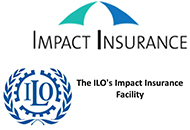Importance of insurance
The Caribbean and Central America face a range of primary natural hazard risks, particularly earthquake and tropical cyclone risks, and to a lesser extent volcanic risks in certain areas. The region also faces secondary risks from flooding and landslides, storm surge and wave impacts, and tsunamis.
With respect to insurance, countries in Latin America and the Caribbean (LAC) are less insured against these same natural disasters. Data from SwissRe show that over 40 per cent of the direct losses from natural disasters are insured in developed countries, while less than 10 per cent of losses are covered by insurance in middle-income countries and less than 5 per cent in low-income countries.
Microinsurance is a cornerstone of the larger area of climate insurance, one that holds promise to reduce the impacts of climate change by enhancing resilience of low-income people. Climate risk insurance has the potential to be a viable risk transfer instrument that can cushion people against the adverse impacts of extreme weather events. It can provide vulnerable communities with access to financial safety nets, where previously none may have existed. It can also offer low-income individuals access to alternate coping strategies thereby giving them a pathway out of a life of social and financial exclusion.
The Role of Insurance
Protective and productive use:
- Protection against setbacks due to crop losses, smooth consumption, prevent the sale of productive assets
- Access to credit, engage in riskier but on more productive and lucrative farm activities
Moving and staying out of poverty






